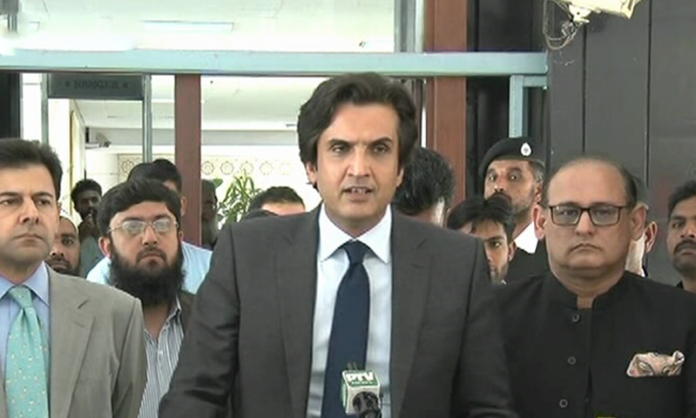- Planning minister says govt focuses on improving and strengthening social and human development
ISLAMABAD: Planning, Development and Reforms Minister Khusro Bakhtiar said on Wednesday that despite challenges, Pakistan has firm resolve to attain sustainable development by implementing the global development agenda of Sustainable Development Goals (SDGs) comprising 17 goals and 169 targets.
Addressing a National Consultation on Pakistan’s Voluntary National Review preparation on SDGs, the minister said that the government has recognised the private sector to complement its efforts to achieve the SDGs. Pakistan, he added, not only endorsed the sustainable development agenda, but has also taken a lead in prioritising 17 goals according to the country’s development needs.
He mentioned that the Ministry of Planning, Development and Reform in collaboration with provinces and local governments launched a National Initiative on SDGs to mainstream and accelerate SDGs implementation in the country.
The minister also appreciated the role of United Nations Development Programme (UNDP) and all other development partners for their support and assistance, saying that the participation of the representatives from the provincial governments, Azad Jammu and Kashmir and Gilgit Baltistan was encouraging with regard to moving forward and achieving the targets.
“Our focus during the forthcoming years will be on improving and strengthening of social and human development, including mother and child health, education and poverty alleviation through sustainable poverty reduction strategies,” he added.
The planning minister said that Pakistan’s effort to achieve sustainable development has been severely hindered by a combination of unfavorable internal and external factors in recent years like high population growth, large proportion of population living below the poverty line, trade imbalances with major trading partners, and instability in political relationship with neighboring countries.
He informed that challenges posed by climate change, natural disasters, cost of war on terror (Rs10,374 billion from 2001 to 2017), low tax-to-GDP ratio, impacts of global economic recession, lack of financial resources, low resource mobilization at provincial level and high dependency on federal transfers also restraint the government’s efforts for stable growth and sustainable development.
“We need to improve coordination with the stakeholders including private sector, development partners and strengthen reporting mechanisms,” he added.
The Planning Commission is committed to ensure that the VNR process is inclusive and the aspirations of stakeholders particularly those of private sector are incorporated in the report, he said, adding that it will help in disseminating the knowledge about the development and will also highlight shortcomings.
He further said that the review would help in improving government policies, interventions and mobilize multi-stakeholder support to develop much needed partnerships.
























